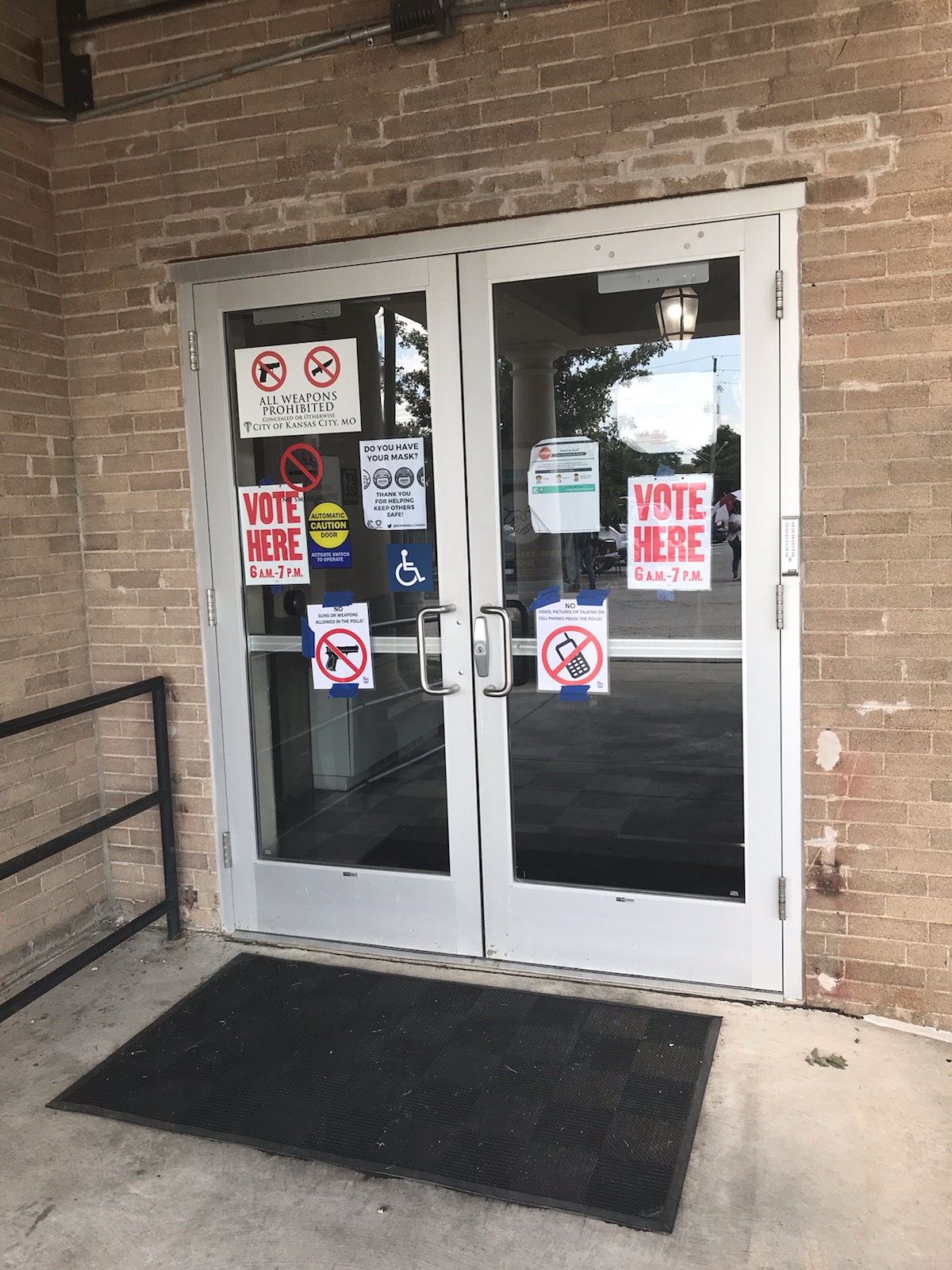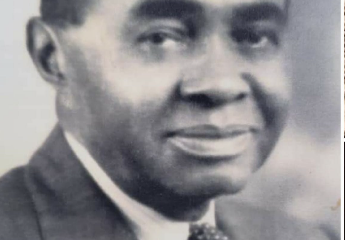Featured
Seven Reasons Black Votes And Black Lives Matter on November 3 And Beyond

Black votes matter in this election and so do Black lives. While debates over the Black male vote and endorsement of hip-hop artists have consumed our attention, there are more important concerns. The outcome of this election will shape the direction of the country and produce life-altering outcomes for Black Americans.. Donald Trump’s reelection – still a real possibility – will harm us as much as anyone. And notwithstanding the concerns that some have of Joe Biden and his backing of the Crime Bill of 1994, Black voters must lead the way in removing Trump for office. Here are seven reasons why:
Health Care: Undoubtedly, health care is on the ballot as Trump and his enablers seek to dismantle the Affordable Care Act (ACA or Obamacare). Although the ACA did not universalize health care, it made significant inroads in reducing the Black uninsured population. A year after ACA’s passage, the Kaiser Family Foundation found that Blacks experienced the sharpest decline of nonelderly uninsured populations with a 5.4 decline compared to 2.3 percent among whites and 5.1 percent among Latinos. Author Daniel Dawes, in 150 Years of Obamacare, also identified 62 provisions in the ACA that addressed racial disparities. Without a doubt, the ACA’s Medicaid expansion program saved the lives of Blacks who were disproportionately impacted by the Covid-19 pandemic.
Criminal Justice/Police Accountability: President Trump’s criminal justice reforms are drastically overrated. His flagship initiative “The Second Chance Act” was actually borrowed from the Obama (and yes, Biden) administration. The law would have been passed if not for opposition to Obama from Republicans in Congress. One can read about the Second Chance proposal in a 2017 Harvard Law Review article authored by Obama. Note the date on the article and the various reforms Obama implemented through executive action. These include reforms to the federal civil asset forfeiture program; ban-the-box initiatives; addressing solitary confinement in federal prisons; steering the Department of Housing and Urban Development and Department of Education to support housing and higher educational opportunities for justice-impacted persons. Further, despite the criticisms of Obama about police reforms, his Department of Justice forced Ferguson, Missouri, Cleveland, Ohio, and Baltimore, Maryland to sign consent decrees monitor civil rights violations by their police departments. The Trump administration has vigorously undermined these consent decrees and has made every attempt to oppose civil rights investigations into police killings since Obama left office.
Voting Rights: The country is now getting a close-up look at how much voting suppression, intimidation, and suppression are systemic to electioneering practices. The Shelby County v. Holder case in 2013 stripped the Voting Rights Act (VRA) of pre-clearance, which provided safeguards and federal oversight over potentially adverse, electioneering tactics in states and counties that had long histories of abuses. All signs point to the further dismantling of voter protections and what is known as Section 2 of the VRA that outlaws discriminatory practices. With Biden’s election, the Department of Justice will revive the Voting Section of the Civil Rights Division so that the federal government can offer a safety valve against wholesale voter suppression procedures. Biden’s election and control of the Congress will most likely lead to the passage of a new voting rights bill, already named the John F. Lewis Voting Rights Act. This law will include safeguards to counter the types of abuses we’ve seen in this election cycle, as well as extend protections to Native American voters who face severe curtailments to their vote.
Food Insecurity: One of the important areas advanced by the Obama-Biden administration is food security. In 2010, First Lady Michelle Obama created the $400 million “Healthy Food Financing Initiative” to bring healthy food grocery stores to low-income urban and rural communities. Obama’s Healthy, Hunger Free Kids Act of 2010 also provided free and healthy food options for public school children. Both programs face potential cuts if Trump is reelected.
Judiciary: The president has an extraordinary amount of power, one of which is the power to appoint federal judges who have life-time appointments. Trump has made 220 appointments and another 67 await Senate confirmation. Of the 220 appointees, 53 now sit on the Court of Appeals and three were appointed to the Supreme Court. These judges will govern longer than most congressmembers and legislators given their life appointments. They will shape judicial policy on matters that are important to Blacsk: employment discrimination, fair housing, voting rights, reproductive justice, policing killings and qualified immunity, class action lawsuits, environmental justice regulations, and safety standards. If Trump wins office, it is likely that he will get another Supreme Court nominee and probably dozens more nominees to the Court of Appeals. On the other hand, a Biden election will reverse the bloodletting Trump has unleashed in the federal courts. Biden will also get a chance to appoint 94 U.S. attorneys who can reshape criminal and civil laws that are important to Blacks.
Redistricting: The next president will be able to use their influence – through federal court appointments and the Department of Justice – to impact the redistricting process. In accordance with the “one-person, one-vote” principle as well as the 14th and 15th amendments, legislative districts must be reapportioned and redrawn after each decennial census. This applies to congressional and state legislative districts and many city councils, county commissions, school boards, utility, and water districts. For congressional seats, redistricting can determine the flow of at least $600 billion of funding from 16 federal programs. The political party that controls the state legislature will determine how congressional seats are drawn. This is an important fight for Blacks who may be unfairly placed in legislative districts governed by lawmakers who undermine civil rights and related protections.
Federal Regulations: Trump’s proudest achievement has been dismantling rules and regulations. While much of his public commentary has focused on regulations that seem to hinder small businesses, in reality, his deregulatory framework is heavily weighted toward corporations and the top one percent. Rule-making and regulatory policies operate in the “shadow government”—dozens of executive agencies, commissions, and departments—that is often out-of-sight and out-of-mind, and thus are subject to less scrutiny by voters. About 4,000 rules and regulations are administered each year. The Trump administration has championed pro-corporate regulations such as the supporting pesticides that harm farmworker families; curtailing environmental protections and industrial pollution standards, including attacks on the National Environmental Protection Act and the Clean Water Act; the elimination of labor protections for graduated student workers; diluting fair housing policies; the elimination of nondiscrimination protections in laws such as the Affordable Care Act; and undermining the U.S. Department of Education’s Title IX oversight, especially safeguards against sexual harassment. These rules and regulations all have life-altering consequences for working families, low-wealth communities, and Blacks. They are just as critical to Blacks as the widely debated Crime Bill of 1994 and other hot-button policies that have taken center stage in this election cycle. Black voters must vote as if their lives depend on the outcome of this election. Indeed, it does and so do the lives of future generations of Blacks.
Dr. Sekou Franklin is a political science professor at Middle Tennessee State. He is the author of After the Rebellion: Black Youth, Social Movement Activism and The Post-Civil Rights Generation.

-

 Black History5 months ago
Black History5 months agoThe untold story of a Black woman who founded an Alabama hospital during Jim Crow
-

 Featured9 months ago
Featured9 months ago‘No Closure’ In Town Where Five Black Residents Were Either Murdered, Died Suspiciously Or Are Missing
-

 Black History9 months ago
Black History9 months agoBlack History Lost and Found: New Research Pieces Together the Life of Prominent Texas Surgeon and Activist
-

 Featured9 months ago
Featured9 months agoFounder of “The Folding Chair” Podcast Calls Montgomery’s Brawl ‘Karma’
-

 Featured8 months ago
Featured8 months agoThousands ‘Live Their Dream’ During National Black Business Month
-

 Featured10 months ago
Featured10 months agoJuneteenth And ‘246 Years Of Free Labor’ Are Key To Conversations About Reparations









